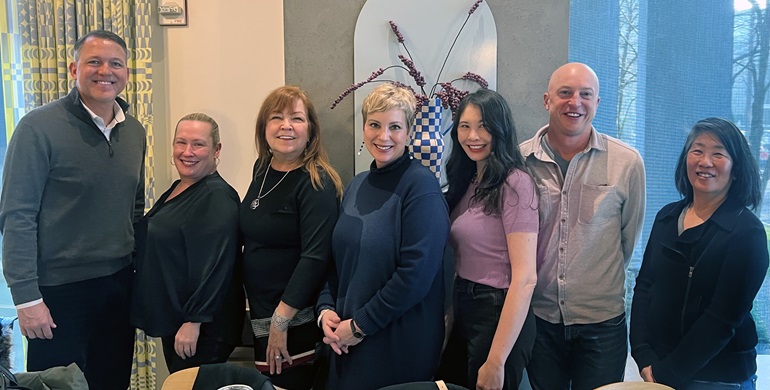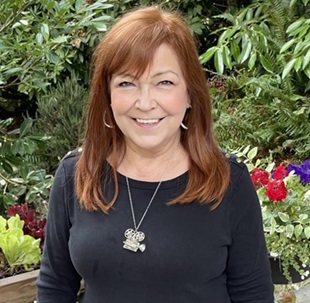About the Office of Economic Opportunity and Creative Economy
Learn about the Office of Economic Opportunity and Creative Economy (OEOCE).
OEOCE’s role includes advising the King County Executive in developing public policy that advances economic opportunity and promotes creative economy growth.
While not permitted to lobby as an individual agency, OEOCE is permitted to advocate on several issues that help advance economic opportunity and grow the creative economy.
OEOCE helps inform King County’s official position and lobbying efforts on economic development legislation at the local, state, and federal level.
OEOCE has supported the following:
What are OEOCE’s core purpose, mission, and values?
Core purpose
The core purpose of the Office of Economic Opportunity and Creative Economy (OEOCE) is to help King County become a regional leader as we build an anti-racist, equitable, resilient, and sustainable regional economy, where every person can thrive. OEOCE’s core purpose is driven by the King County Executive’s True North and values.
Mission
To advance economic opportunity and growth throughout our region by developing sound policy, and fortifying partnerships and resources.
Values
- Accountability: We operate with transparency in response to community need and input.
- Equity: We use our institutional power to fuel opportunity where it hasn’t existed or has been limited.
- Leadership: We provide servant leadership to the community and industry.
- Industry: We provide responsive support while championing the success of our industry partners.
- Results: We move at the speed of innovation — earning the trust of community, including business, labor, organizations, and individuals.
- Teamwork: We empower internal and external partners to fortify an economic landscape where all can thrive.
How does OEOCE function within King County?
- OEOCE’s responsibilities set forth in Ordinance 19541 are:
- Coordinating the county's efforts to develop a strong equitable economy that creates opportunities for all residents;
- Developing and implementing strategies to promote economic revitalization and equitable development; and
- Assisting communities and businesses in creating economic opportunities, promoting a diversified economy, and promoting family-wage job creation.
- OEOCE serves as a hub to align strategy and policy across King County’s Executive branch.
- OEOCE oversees strategic partnerships with economic and workforce development organizations, including Greater Seattle Partners, Workforce Development Council, and Associate Development Organizations.
- OEOCE reflects the Executive’s commitment to economic opportunity. It is focused on meeting two of the greatest generational challenges of our time: building equity and opportunity, and confronting climate change. Guiding every initiative is the goal of becoming the most forward looking, best-run government in the nation.
- The OEOCE Directors serve on the Executive Cabinet and Extended Leadership Team, and they advise the Executive on economic development policy, strategy, and budget.
- OEOCE convenes the Economic Opportunity Coalition, a monthly meeting with all King County Executive Branch employees working in economic and workforce development. OEOCE helps coordinate and share information with this group to help advance King County’s economic and workforce goals.
- In coordination with the Executive Climate Office, OEOCE addresses climate change impacts of workforce, business, and economic development.
- OEOCE supports all economic development while devoting focused attention to the creative economy.
Are you hiring?
OEOCE and Harbor Island Studios are not involved with hiring for individual film productions.
All available King County positions are posted at https://www.governmentjobs.com/careers/kingcounty.
OEOCE positions are also shared via @KingCountyCreative on Instagram and Facebook.
Meet the team
OEOCE staff


Creative Economy Director Kate Becker
Kate Becker
Creative Economy Director
Kate Becker is the Creative Economy Director in King County Executive Dow Constantine’s Office. Building sustainable creative communities has been at the core of Kate’s career. Kate currently spends her days (and nights!) working to build King County's creative economy, keenly focused on the film, music, and events industries.
Prior to joining Executive Constantine’s Office, Kate served as the Director of the City of Seattle Office of Film + Music. She has also served in leadership roles at Seattle Theatre Group, Art Share LA in Los Angeles, and The New Art Center in Boston, MA. She co-founded legendary Northwest all-ages venues The Vera Project and the Old Fire House, talent pipelines for the music industry.
Kate has produced more than 1,000 all ages shows and numerous large-scale events and fundraisers. She also founded the Old Fire House Media Lab, ensuring that emerging filmmakers and musicians have access to studio space. She loves startup culture and founded two small businesses and two nonprofits. Kate was a charter member of the Seattle Music Commission and serves on the board of Music Policy Forum and NFFTY (National Film Festival for Talented Youth).

Economic Development and Economic Recovery Director Ashton Allison
Ashton Allison
Economic Development and Economic Recovery Director
Ashton Allison is economic development and economic recovery director at King County Executive Dow Constantine's Office. Ashton brings over 18 years of diverse economic development experience in the private, public, and nonprofit sectors. He is also a Certified Economic Developer through the International Economic Development Council and pursuing his Economic Development Certificate at the Harvard Kennedy School.
Ashton’s most recent role was as the director of business retention and expansion at the Seattle Metropolitan Chamber of Commerce (Chamber). Ashton was responsible for leading the King County Associate Development Organization (ADO) and working with private and public sector partners to conduct effective business outreach, assistance - and most recently, the COVID-19 emergency response.
Prior to his time at the Chamber, Ashton served as a consultant with TIP Strategies, an economic development consulting firm. He managed strategic planning projects across the US, including several projects in Washington State. Ashton's background also includes previous positions as a public sector economic development practitioner, nonprofit entrepreneur support organization director, and marketing agency account manager.
Contact the team
- General Inquiries: creativeeconomy@kingcounty.gov
- Nate Brend (he/him), Harbor Island Studios Facility Manager, nbrend@kingcounty.gov
- Amie Danielewicz (she/her), Creative Economy Project Manager, adanielewicz@kingcounty.gov
- Michal Lufkin (he/him), Local Food Initiative Program Manager, michael.lufkin@kingcounty.gov
- Susanō Surface (they/them), Executive Analyst, Continuous Improvement and Operations, ssurface@kingcounty.gov
- Nancy Yamamoto (she/her), Workforce Program Manager, nyamamoto@kingcounty.gov
 Translate
Translate